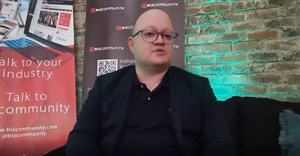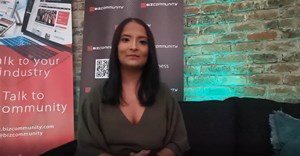Revitalise your professional brand for the New Year

Ego-Googling is your professional mirror to your digital brand, in other words it reflects your on-line profile, in the same way as your business cards, CV and behaviour reflect your professional brand. When we leave home in the morning, most of us take care to look professional for work because we recognise that first impressions count. The Internet makes it so much easier for us to discover things that many people now Google someone before meeting, hiring or doing business with them. It is important that our professional off-line brand that we have crafted for success (all be it unconsciously in some instances) matches our digital brand, because the digital brand is rapidly becoming the new first impression.
If someone Googles you and they don't find any indication of your expertise, or worse still, they see evidence on your Facebook profile that you are a drunken reprobate, chances are you won't even know that you have missed a business or job opportunity.
Finding new business
Many people start the business process by using search terms to identify the players with whom they may do business. If your potential client is looking for a CRM consultant, say, chances are that they will search for “Customer Relationship Management Consultant in Gauteng” etc., and if you emerge as the pick of the CRM bunch (by appearing in the top three results) then you have done a fantastic Search Engine Optimisation job. But constructing your brand so that search engines can find you is more than having the right technical tags on your website. What if the business hasn't realised that your services are available? How do you make sure that opportunities come your way?
In order to ensure that people who are searching for professional services find you, you need to leave a digital trail of evidence that you are an expert in your field. In the real world, you would speak at conferences and network at business breakfasts. In the digital world you can participate in on-line industry forums, or upload presentations that you have developed on the subject.
Managing client relationships
Today, with web 2.0, the boundaries between businesses and clients are blurring, and organisations are increasingly experienced as a collection of people, rather than an institution. People and businesses can enhance their future success by ensuring that the individuals' professional brands are carefully built and maintained on the Internet. This is a pretty labour intensive exercise in the beginning, filled with more introspection than many of us have undertaken in a long time. The maintenance of a professional profile is a relatively pain free discipline.
Steps to creating a personal professional digital brand
So you have recognised that you need to maintain your professional profile on-line, what do you do next? Do you register yourself on Plaxo, Ning, Linked-in, Facebook, Twitter etc.? This is the equivalent to getting someone to design you a logo and thinking that you have created a brand.
Personal brands are all about how people experience you, what they believe about you and what they expect from you, it talks a lot of thought to craft a personal brand.
Step 1: Who do you need to be in your professional life to be successful?
We all have CV's of experience that we have built up over the years (some more comprehensive than others). We used those CV's or experiences to get to the professional position that we are in now. The first thing to do is to dust off (metaphorically speaking) and update that old CV. This is the starting point, your collection of skills, education, awards, experience and competencies. The next step is to ask yourself what your CV should look like for what you want to be professionally, and to update it to be the framework of your professional brand. You may also identify that you need to acquire more skills, or register with more professional bodies etc.
Step 2: Prove it
Once you have understood who you are and who you need to be, you can set about creating a strategy for creating your professional brand on-line.
If your CV indicates that you are a great writer, include proof of your writing skills as collateral in your professional brand strategy. Ask yourself what you could blog about that proves that you have fabulous writing skills. The same goes for blogging to demonstrate innovation, thought leadership, creativity, management and leadership etc.
You need to design some evidence that you are as good as you say you are. At the same time, look for public endorsements of your professional brand, do you have recommendations from clients or bosses, have you won any awards for projects you have managed?
Step 3: Select your Social Media
There are many choices of Social Media out there for you to choose to create your digital brand. Because you know what you want to achieve, you can select them to support your strategy.
If it is important for you to be seen as a fun loving guy, because you are a tour operator, then Facebook and Twitter are perfect mediums for you to upload photographs and provide ongoing commentary on how much fun people are having around you. If it is necessary that people trust you, let's say you are a doctor or accountant, then by all means, use Facebook, but ensure that the information about you and the updates are all about wholesome things like family rather than debauched parties. Make sure that your updates are thoughtful, not silly.
Look for communities of interest like the 702 ad feature group, where if you are an advertising professional, you can demonstrate your knowledge of the advertising world, by commenting meaningfully on the latest advertisements.
If you are a professional, either self-employed or working within a large corporate, choose Linked-in and Plaxo and pro-actively surround yourself with people that you want to be associated with. Link up to industry leaders, join in relevant conversations and discussion groups.
Blogging is an incredibly good way to express yourself, many of the social media platforms enable you to pull in blogs that you have written on other sites, so that no matter where a potential opportunity encounters you, you will be equipped with the professional collateral that demonstrates your professional brand.
Step 3: Maintain
The modern internet is all about dynamism, we no longer create ‘brochureware' once and leave it for an annual review. Our professional profiles are ongoing manifestations of our personal brands and need to be kept active so that we don't run the risk of an outdated (read unkempt) personal brand.
Many people will be reading this article and thinking “I couldn't do this, it would be like boasting, or vain”.
The reality is that in the same way as you wouldn't dream of leaving home inappropriately dressed and you engage with people in the real world (through phone calls, email or in the boardroom), on the Internet people are assessing the professional value you have to them, and in the plethora of noise on the web, you have to stand out as a professional brand to be taken seriously.











